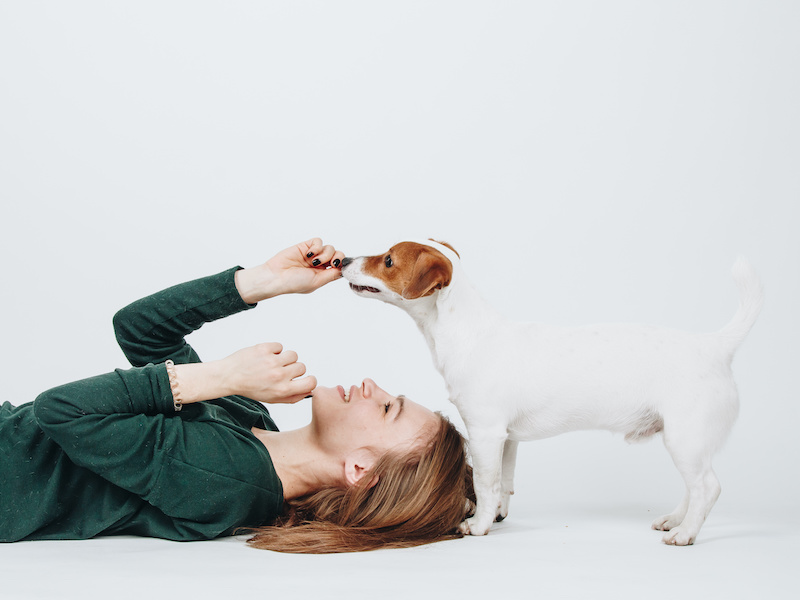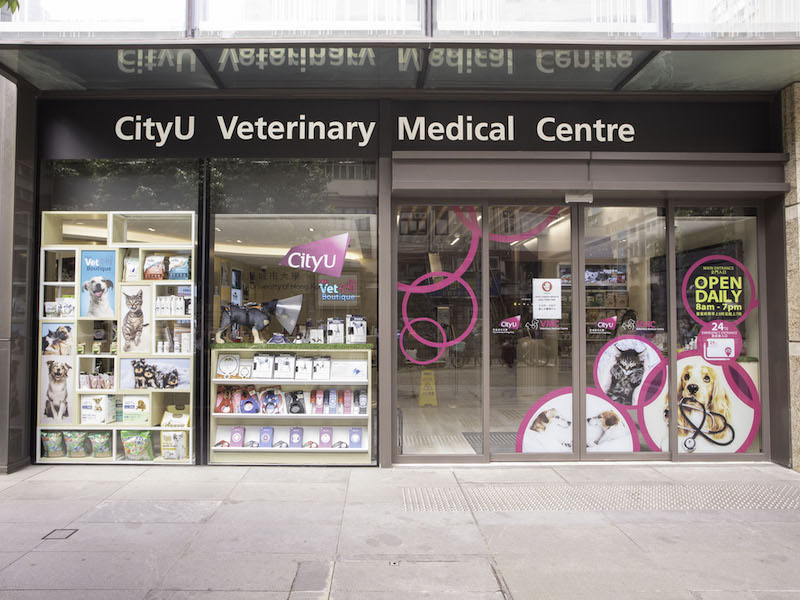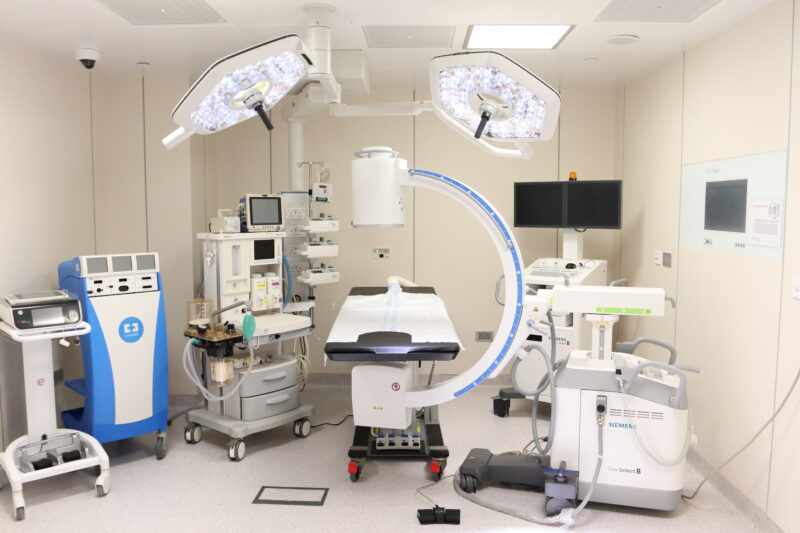We chat with three Hong Kong veterinarians from CityU Veterinary Medical Centre (CityU VMC) and find out about their work, including their particular specialties. We also hear about some of the challenges of being a vet and what it’s like working in a veterinary clinic and caring for animals.
Where are you from originally and what do you miss about it?
Dr Bonello: I was born in Italy, and lived most of my life in the northwest of the country, in Turin. But I have also travelled a lot, both for study and work, and I must admit that when abroad I rarely miss home.
Dr Johnnides: I’m originally from Miami, Florida. I do occasionally miss some comforts of home, like Miami Cuban food and spending time with my family.
Dr Zegers: I’m from the Netherlands but left many years ago. Before moving to Hong Kong, I lived for eight years in the Middle East.
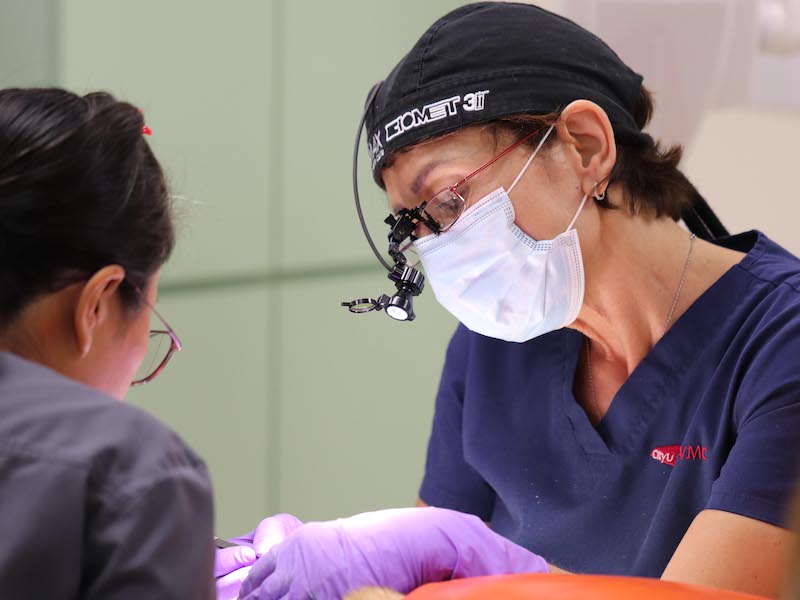
When did you move to Hong Kong?
Dr B: I came to Hong Kong in 2022 for work. I was offered an opportunity to work with the Hong Kong veterinarians at CityU VMC and I couldn’t refuse!
Dr J: I’ve been in Hong Kong for seven years, I ended up here after moving to Singapore, where, in 2015, there weren’t many options for a veterinary specialist in my field of expertise. Therefore, I started to explore the region for other possible career opportunities. I was later hired to work at Peace Avenue Veterinary Clinic (the predecessor of CityU VMC) and now I’m at CityU VMC.
Dr Z: I arrived in August 2022, together with my husband and kids. My husband was offered a new role here and we decided it was time for a new adventure!
Tell us about a typical day at the veterinary clinic.
Dr B: A typical day for me starts at 8.30am with morning rounds. That’s where our team of Hong Kong veterinarians discuss the most critical cases and gather information about all the patients. Then I move to the dental theatre where I spend most of my day taking care of those that need surgery. My day ends with patients being discharged. That’s the happiest moment of all, when I see them going home with their families.
Dr J: I start at 7am in the veterinary clinic with the team of emergency doctors. We’re the first team in the hospital. We look at cases admitted overnight through the ER department, and the progress of cases in the intensive care unit (ICU), amending their therapy where needed. This assessment is ongoing throughout the day, as many of these cases are dynamic.
At 8.30am, all the veterinarians hold rounds on their cases in the hospital, collaborating and discussing each case. Throughout the day, any new admissions from ER or other services are assessed as needed, when admitted to the ICU.
Our ICU is the only one in Hong Kong which is overseen by a veterinary specialist in Emergency and Critical Care. Each day is as unique as the patients presenting to the hospital – we never know what the day (or night) has in store!
Dr Z: As with my fellow colleagues, a typical day for me starts with rounds where we discuss all the in-house patients, get updated about any changes during the night and discuss ongoing treatment/progression.
Afterwards, I check in-house patients who are under my care that day. This might involve adjusting treatment plans, proceeding with further diagnostics if necessary, and also updating the owners. When that’s done, I start with the scheduled surgical procedures and consultations, follow-up on laboratory results, and deal with call-back memos.
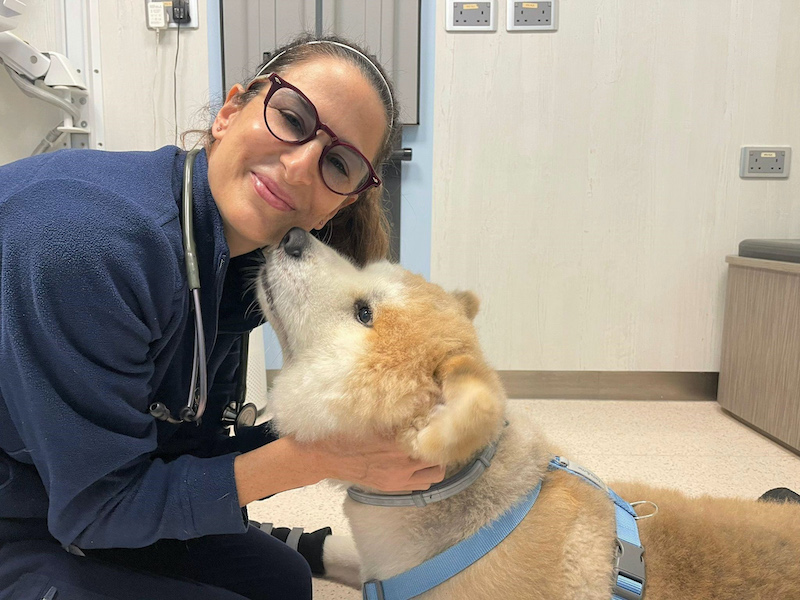
What’s the most common animal illness you treat?
Dr B: Teeth abscesses and teeth fractures caused by chewing on bones and antlers.
Dr J: I would say that multiple organ dysfunction secondary to shock is by far the most common case I treat. The primary cause can be variable – at CityU VMC, we see gastric dilatation and volvulus (GDV), hemoperitoneum, heat stroke, trauma cases such as animals hit by cars, dog bites, snake envenomation, endocrine emergencies, seizures and immune-mediated diseases.
Dr Z: Most commonly, I treat respiratory illnesses, gastrointestinal illness (vomiting and diarrhoea) and urogenital disorders. The latter include kidney disease and urinary tract infection.
What’s the most avoidable or preventable condition you see?
Dr B: Periodontitis is the late stage of dental disease. It starts with gingivitis, the most common symptoms of which are bad breath and bleeding from the gum. The progression into periodontitis can be delayed or trip to our veterinary clinic completely avoided simply by brushing the teeth every day.
Dr J: Car accidents, high-rise syndrome (injuries from falls from a height) and heat stroke.
Dr Z: Several diseases can be avoided with proper vaccination schedules, parasite prevention and desexing. To help owners with the healthcare of their furry babies, CityU VMC developed a Puppy & Kitten Wellness Programme to ensure a healthy and happy start to life.
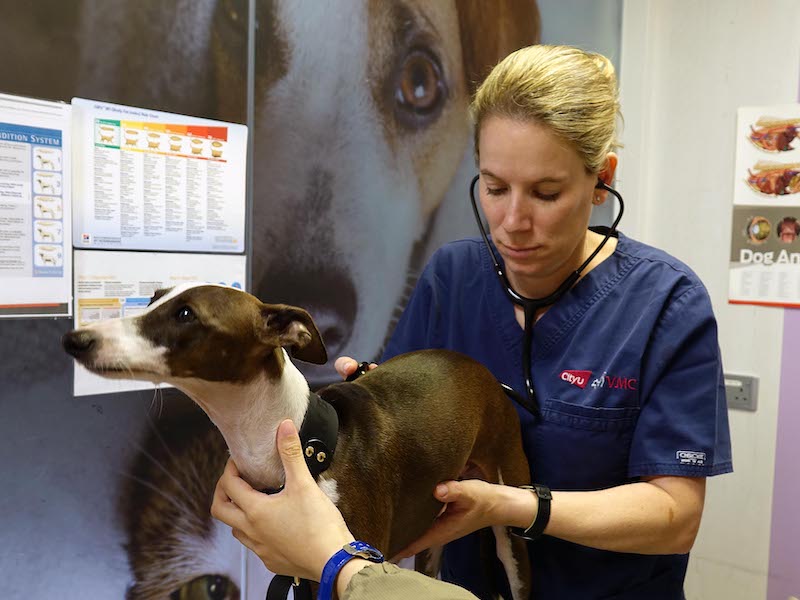
How would you describe the teamwork and collaboration at CityU VMC?
Dr B: Amazing. My colleagues are capable and reliable – we share knowledge and responsibilities for the good of the patients.
Dr J: We’re very collaborative. We rely on input from our colleagues to support patients throughout recovery. It’s not uncommon to have one patient see a primary care practitioner and then the dentist, anaesthesiologist and radiologist all in one day! This work would not be possible without the amazing team of technicians and assistants – we have over 100 support staff who are essential in healing our patients!
Dr Z: Working in a multidisciplinary and multicultural team with a shared goal and providing the best care in our veterinary clinic is a privilege that I’m enjoying every day.
What made you want to be a vet?
Dr B: Honestly, I can’t answer. I don’t know why, but I know that when I was four years old, I told my mother I wanted to be a vet. And I never changed my mind!
Dr J: My love for medicine and pets combined made veterinary medicine an appealing career.
Dr Z: I was passionate about animals and the opportunity to work closely with them and make a positive impact on their lives, to care for them, ensuring their wellbeing and health was the motivating factor. But I also like to connect with people, so I’m dedicated to communicating effectively to make all visitors feel as comfortable as possible.
What do you enjoy most about being Hong Kong veterinarians, and what’s the hardest thing about the job?
Dr B: I can tell you what fulfils me: relieving pain and fixing problems. I do my best to do this both for the pets and the owners.
Dr J: The diverse caseload and unpredictable nature of cases keep me on my toes. Tackling cases that have a poor prognosis and then being able to send them home is very rewarding. At the same time, not being able to provide an owner with a positive outcome or see a patient go home is hard, especially when a pet is very much a member of the family; it can be very upsetting. Thankfully, we have a fantastic group of vets and veterinary nurses and assistants who help support each other in a very demanding and intense environment of emergency and critical care.
Dr Z: I love the interaction with clients. At the same time, though, it’s the hardest thing about the job! Proper client communication is very important in our role, but sometimes it can be very challenging to meet expectations.
What do you think about the public and clients’ conception of vets?
Dr B: Vets are no different from any other professionals. People and clients look for professionalism, commitment and reliability, while owners deserve vets who really care.
Dr J: I think that many clients may not have the full picture about the education required to obtain and maintain a degree as a veterinary specialist, and specialist medicine is not fully understood. As a veterinary specialist, you do an undergraduate degree, then a four-year veterinary degree, followed by a rotating medical and surgical internship, and a three-year residency in the field of training. For me, this field is emergency and critical care. After completing a residency programme and sitting for the board examination, a veterinary specialist must submit and publish a peer-reviewed paper. Credentials must then be maintained and checked every 10 years.
Dr Z: The public perception of veterinarians is of increasing concern given the mounting challenges facing the industry, ranging from mental health implications arising from compassion fatigue and euthanasia to other challenging aspects of the profession. In particular, the influence of social media should not be underestimated.
What do you like to do in Hong Kong when you’re not working?
Dr B: Walking around and seeing the sites, as everything is so new to me!
Dr J: I enjoy spending time with my family. We have two children, so time off is usually spent in the garden or at the beach.
Dr Z: I like exploring Hong Kong together with my husband and two kids – we still have many hikes to do!
Vets and their pets
We asked our three Hong Kong veterinarians about their own animals.
Dr B: I left in Italy my two dogs: a seven-year-old Schnauzer named Otto and a German Shepherd named Luna. They live in the countryside and they would not adapt to an indoor life in Hong Kong.
Dr J: We have two dogs and a cat. One of my dogs and my cat are from the US. They’ve travelled around the world! Our second dog is a village dog from Sai Kung.
Dr Z: I have a cat and a horse, but they’re in the Netherlands. Due to the strict regulations, I was not able to bring my cat directly from the Middle East to Hong Kong, so I decided to relocate him to the Netherlands where he lives with my family.
About the veterinary clinic
Opened in April 2019, CityU Veterinary Medical Centre (CityU VMC) has over 20 consultation rooms, four wards and seven state-of-the-art operating theatres, and is one of the largest and most advanced and round-the-clock companion animal veterinary clinics in Hong Kong with 24/7 registered veterinarians on site. It’s staffed by an international group of veterinarians, nurses, technicians and supporting staff who offer a team-based approach and comprehensive veterinary services.
New Service:
The Puppy and Kitten Wellness Programme at CityU VMC is an inclusive programme that covers the essential health needs of furry friends in their first year of life, including wellness consultation, full vaccination series, deworming, desexing for both dogs and cats, and microchipping and heartworm prevention for puppies. (See details at bit.ly/3OIQ0Lc.)
CityU VMC is located at G/F-2/F, Trinity Towers, 339 Lai Chi Kok Road, Sham Shui Po, Kowloon. The general hotline is 3650 3000 and the 24-hour emergency hotline is 3650 3200.
Find out more about the practice and other Hong Kong veterinarians and their specialties at cityuvmc.com.hk.
This article about CityU VMC veterinary clinic first appeared in the Autumn 2023 issue of Expat Living magazine. Subscribe now so you never miss an issue.

